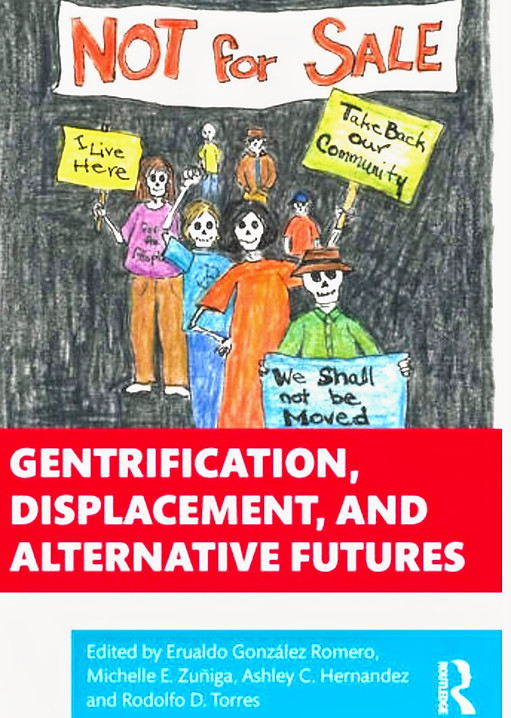Welcome to my site. I am an urban-ethnic studies scholar recognized for contributions to the study of gentrification in central cities and downtown zones. I examine the role of public-private activities and policy formation as critical drivers for large-scale commercial gentrification. I also examine how claims for rights to downtown commercial spaces vary across racial, ethnic, generational, class, and privilege dimensions. My work has primarily focused on zones traditionally marketing to Mexican, working-class immigrants.

Gentrification is one of the most debilitating—and least understood—issues in American cities today. Scholars and community activists adjoin in Gentrification, Displacement, and Alternative Futures to engage directly and critically with the problem of gentrification and to address its impacts on marginalized, materially exploited, and displaced communities.
Authors in this collection begin to unpack and explore the forces that underlie these significant changes in an area’s social character and spatial landscape. Central in their analyses is an emphasis on racial formations and class relations, as they each look to find the essence of the urban condition through demographic change, economic restructuring, and gentrification. Their original findings locate gentrification within a carefully integrated theoretical and political framework and challenge readers to look critically at the present and future of gentrification studies.
Gentrification, Displacement, and Alternative Futures is a vital read for scholars, researchers, planners, and organizers hoping to understand the contemporary changes happening in our urban areas.

Latino City explores how city redevelopment plans and related city documents, as well as broader media and local publications, socially construct problems and imagined communities, erase existing and majority populations from redevelopment consideration, and create a set of practices prioritizing future communities. The book is also about resistance, detailing how residents and grassroots leaders go about unbinding rather than accepting such plans, characterizations, and projects, showing the differences that some of these efforts make, and challenges that the grassroots encounters along they way.

"Ultimately, Latino City provides scholars and students interested in gentrification research with an introspective analysis of gentrification from the viewpoint of displaced populations. González presents a convincing study that links spatial alienation and city redevelopment initiatives infused with racist and elitist discourse."
LSE Review of Books
"From cringe-worthy Brave New Urbanist videos erasing Mexis from their city to puff pieces about how great the new downtown is, they omit a history that Cal State Fullerton Chicana/o Studies Professor Erualdo Gonzalez masterfully retells in his new book."
OC Weekly

